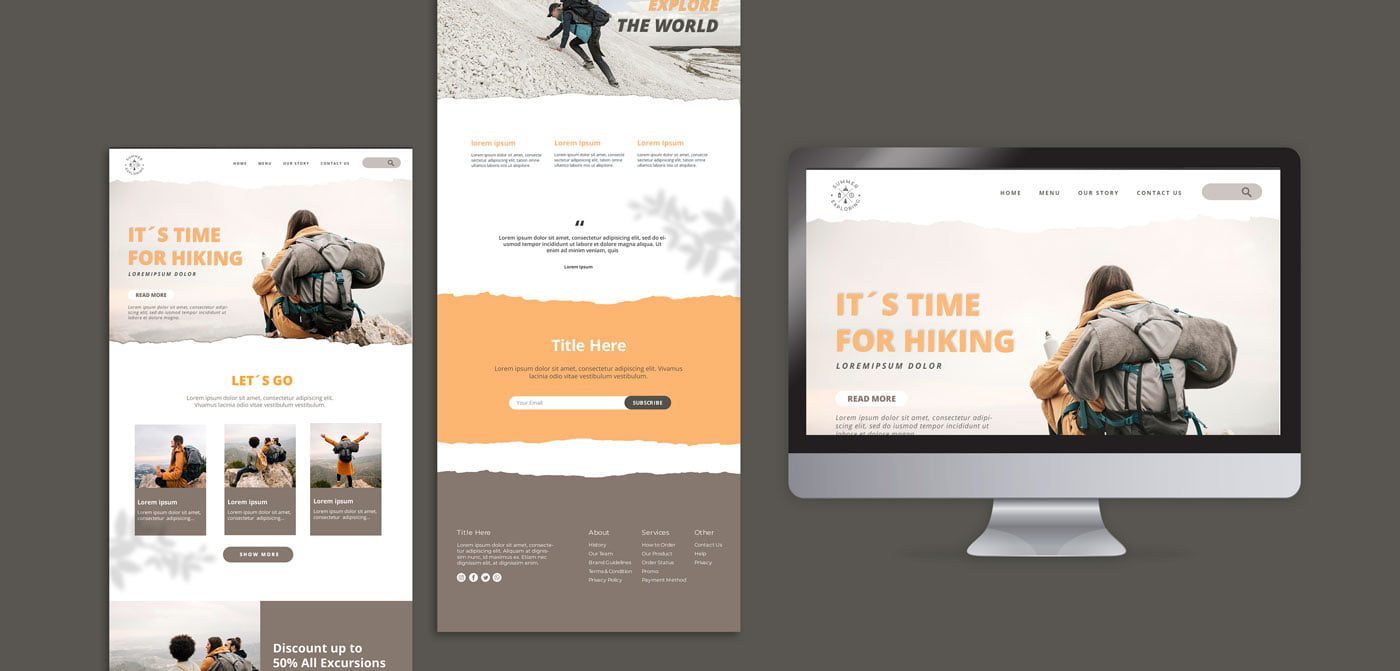Table of Contents
Drive more revenue for your company
A business website is an online platform created and maintained by a business or organization to establish a digital presence, promote its products or services, and engage with customers or clients on the internet. These websites serve as virtual storefronts and communication hubs, playing a crucial role in the modern business landscape. Here are key elements and purposes of a business website:

The Key Elements and Purposes of a Business Website
Online Presence
A business website acts as a virtual representation of the company, providing a professional and accessible point of contact for potential customers, partners, and investors. It serves as an extension of the brand identity, conveying the company’s values, mission, and offerings.
Information Hub
Business websites are information repositories that offer details about the company, its history, team members, and the products or services it provides. This information helps build credibility and trust with visitors seeking to learn more about the business.
Product or Service Showcase
One of the primary functions of a business website is to showcase the products or services offered by the company. This often includes detailed descriptions, images, and, in some cases, pricing information. An effective website can influence purchasing decisions by presenting offerings in an appealing and informative manner.
E-commerce Functionality
For businesses involved in selling products, an e-commerce website allows customers to browse, select, and purchase items online. These websites typically include secure payment gateways and user-friendly interfaces to facilitate seamless transactions.
Contact and Communication
Business websites provide contact information, including email addresses, phone numbers, and sometimes live chat features. This enables visitors to reach out with inquiries, feedback, or support requests. Effective communication channels contribute to customer satisfaction and trust.
Search Engine Visibility
Optimizing a business website for search engines (SEO) is crucial for increasing visibility in online searches. This involves using relevant keywords, creating quality content, and ensuring the website’s structure is search-engine-friendly. Improved search rankings can attract more organic traffic.
Responsive Design
With the prevalence of mobile devices, a business website needs to have a responsive design. This ensures that the site adapts and functions well on various screen sizes, providing a positive user experience across desktops, tablets, and smartphones.
Analytics and Data Collection
Business websites often integrate analytics tools to track user behavior and gather data on website performance. This information helps businesses understand their audience, identify trends, and make informed decisions to enhance the user experience.
Marketing and Promotion
Websites are powerful tools for marketing and promotion. Businesses can use their online platforms to share updates, promotions, and announcements. Integrating social media links and sharing features extends the reach of content beyond the website.
In essence, a business website is a dynamic and versatile tool that goes beyond a static online presence. It serves as a central hub for establishing brand identity, connecting with customers, and driving business growth in the digital age.

